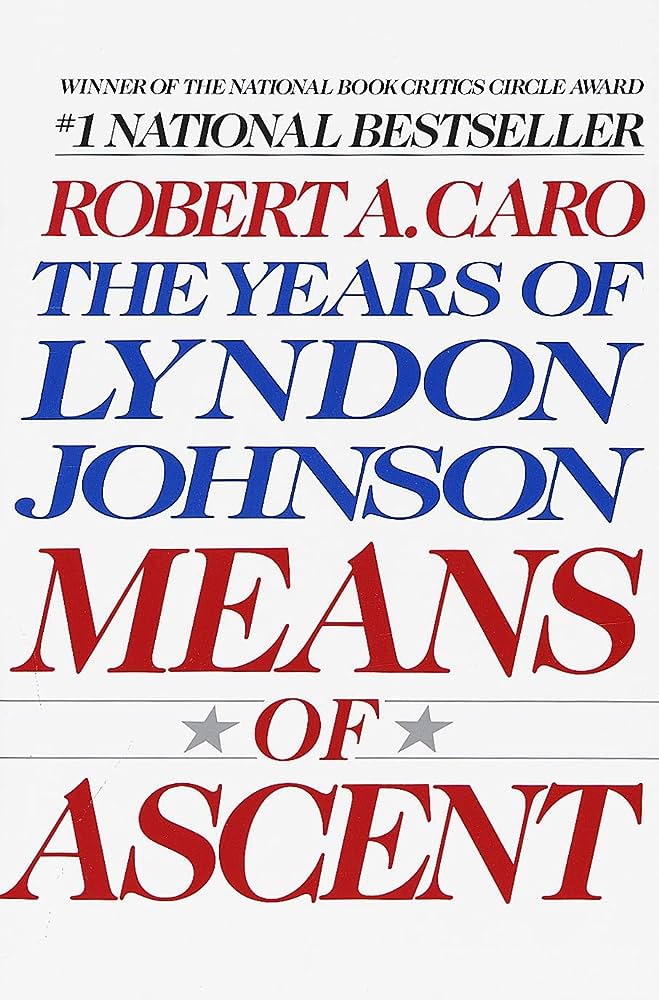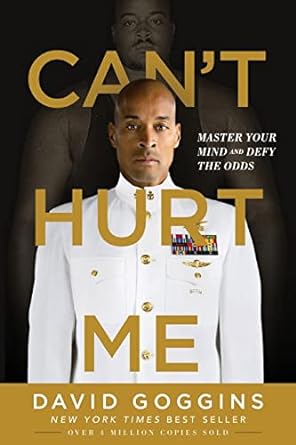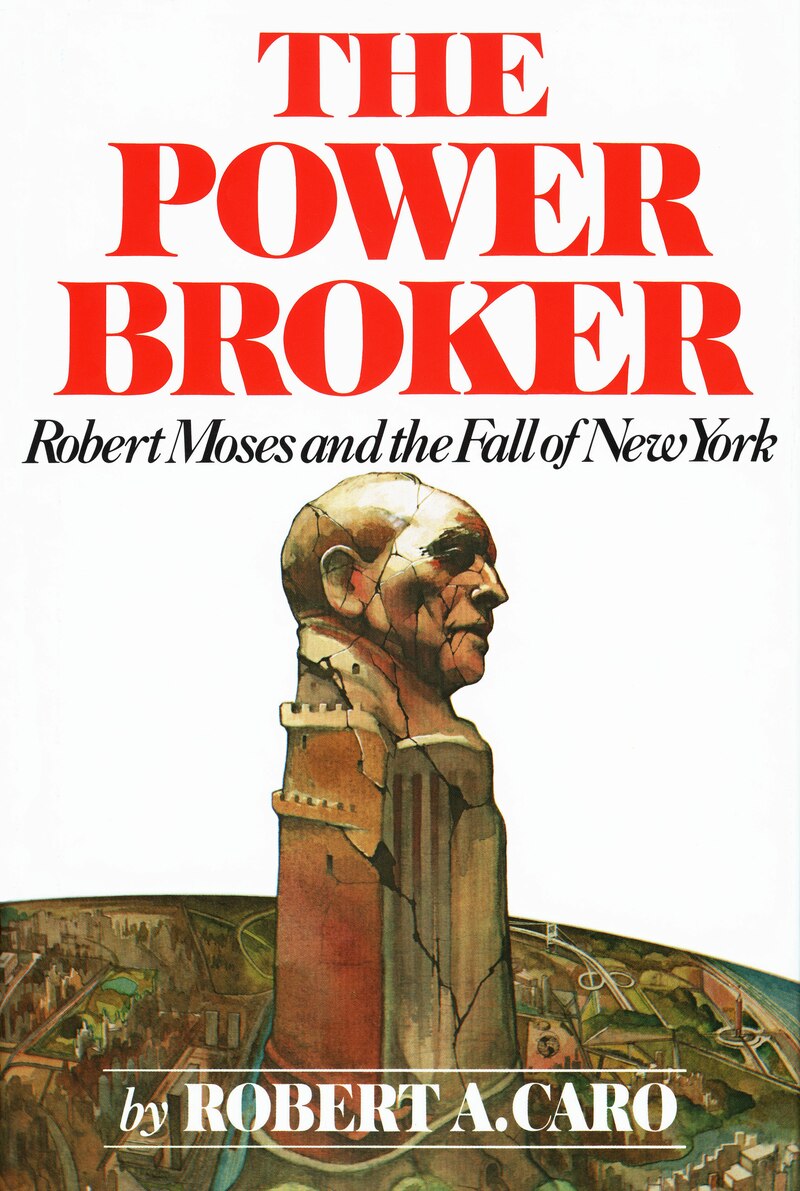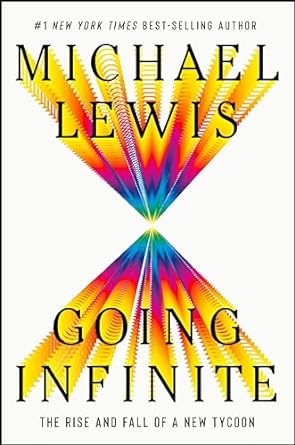
the years of lyndon johnson: means of ascent
robert a. caro
for those unaware, the years of lyndon johnson is the non-fiction game of thrones: first volume published in 1982, now up to four volumes consisting of 3,000 total pages, latest one released in 2012, and people are praying caro (now 89) lives long enough to complete the fifth and final volume. personally, i have more faith in him than i do in grrm, even though caro is like a decade older. i’m skipping to the second volume here because i read it pretty recently. important takeaways from the first volume: johnson had a humiliating childhood as a member of the family that was the laughingstock of his miserable remote texas hometown of johnson city which gave him a lifelong inferiority complex and raw ambition for power, he was willing to do anything to win elections including cheat (even rigging the vote to be class president in college), and he understood the importance of bringing big money to campaigns, developing a very fruitful relationship with a construction company CEO that gave him a firehose of money in exchange for granting them huge government contracts.
means of ascent picks up after johnson’s defeat in the 1941 special election for the texas senate, where he had an impressive showing (losing by only ~1,000 votes statewide) despite going in as an unknown against the current governor, a popular bible-thumping radio broadcaster (and flour salesman). though johnson is still a congressman, it turns out that junior congressmen have shockingly little power, even if you get onto the right committees power within them is almost entirely based on seniority, and even then they’re frequently dominated by the chair (the most senior member from the majority party) alone. unless you get lucky and everyone ahead of you in seniority loses elections, retires, or dies, you could spend decades waiting your turn to finally wield actual power as a committee chairman.
LBJ still did his best to get close to power as a junior congressman, he cultivated relationships with president FDR and speaker of the house/fellow texan sam rayburn (the speaker is the most powerful position in the house of representatives). he even weaseled his way into an unofficial role at the democratic national committee, using his skills to transform it into an effective central coordinating organization for getting democrats across the country elected. he accomplished that primarily by tapping into the new flow of texas oil money for fundraising, strategically distributing the funds to democratic campaigns across the country and acting as an unofficial “kingmaker” deciding whose campaign is worth funding or not, above all making sure the democratic candidates knew who had made the decision to send the money. despite all that effort, it still didn’t come close to getting him any actual power as a junior congressman.
the first half of the book is relatively boring because it largely reflects what johnson did during his twelve years in the house of representatives: a whole lot of nothing. johnson rarely participated, introducing/sponsoring only 1-2 bills the entire time, largely because he was trying to safeguard his reputation for a future senate/presidential run. it wasn't worth committing to anything this early in the game for him, you never know when a political trend is going to fall out of favor, even the seemingly-unstoppable new deal coalition had fallen apart without FDR at the helm. this has been a common theme throughout johnson’s political career so far, he’s ruthlessly pragmatic and doesn’t appear to have many consistent underlying political beliefs of his own, always willing to shift his positions to whatever he thinks has the best chance of getting him elected.
one of the few interruptions to johnson’s do-nothing house career is his military “service” during the war, where he spends several months with a buddy partying his way up the west coast “inspecting” military facilities, then catching heat for it and “ships off to the front” by going to australia. at "the front", he participates as an observer on a grand total of 1 (one) bombing mission. to be fair from reports it did seem like it was a pretty hairy mission, one of his observer colleagues on another plane actually did get shot down and killed. johnson, deploying his signature bullshitting ability, was later able to spin that single mission into a courageous tour of duty on the front lines for heroic veteran cred, always a boost for any political career.
johnson’s other escapade during that time was the start of his business empire, which began with the purchase of a local austin radio station, ostensibly a completely independent business venture pursued by his wife lady bird. many suspicious coincidences happened afterwards, like the station finally landing a lucrative FCC license to broadcast at peak hours on a good frequency, a license that it had been denied several times under its former management, precisely the kind of favor an influential congressman might be able to swing...
the real meat of the book, however, is the epic drama of the 1948 texas democratic senate primary, one of the closest and most controversial elections in US history. the stakes could not have been higher for johnson, his political career and presidential aspirations would all end right there if he couldn’t pull it off. another texas senate seat may not open up for a whole generation, far too late for johnson’s timeline (johnson was acutely aware that he had a time limit, johnson men had weak hearts and rarely made it past their sixties). he was all in, he wouldn’t even be a congressman anymore if he failed, as he’d neglected to file the papers to run for re-election.
meanwhile, johnson’s opponent was more fearsome than ever: coke stevenson, one of the most popular politicians in texas history, a former governor who’d won multiple historic landslides. it was his race to lose; he was perhaps the most popular politician in the state, nicknamed “mr. texas”. he represented the old texas ideal, both a rancher and cowboy, a self-taught lawyer with a strong moral compass and no time for crooks or funny business. he was scrupulously honest and refused to run on any sort of political platform, saying that his record should speak for itself and that the people should trust him to make the right decisions when it came time to make them. he had a disdain for politics and always ran for office reluctantly, as if only doing it out of a sense of duty to the people of his state, who kept demanding his return.
stevenson was the perfect foil for johnson: it was the anti-politician vs. the career politician, Old Texas vs. New Texas, the beloved incumbent vs. the unknown upstart, personal honor and firm moral principles vs. a willingness to do anything to win, an old-fashioned handshake campaign vs. a big money statewide extravaganza. despite the long odds, it wasn’t johnson’s first rodeo, just seven years prior in a race for the same position he’d fought his way from nothing to an extremely close election against another beloved texas cultural icon and governor, pappy o’daniel. johnson’s only chance was to blindside a complacent stevenson by bringing the full force of “new” politics against him: big money (his 1948 senatorial campaign may have been the costliest one in US history to date), new technologies, and most importantly, a willingness to fight dirty.
stevenson’s honesty and johnson’s sliminess meant that for the majority of his campaign, johnson had pretty much a free pass to smear stevenson and put whatever words he wanted into his opponent’s mouth unopposed, as stevenson’s personal code of honor precluded him from dignifying johnson’s blatantly untrue attacks with any proper rebuttal. even when johnson misrepresented stevenson’s political positions, stevenson refused to make any firm public statements clarifying his stances even though he freely spoke about them privately, whenever he was on the record with journalists he’d always reply to their questions regarding johnson’s attacks with “my record speaks for itself”, expecting they’d go back and refer to his actions at governor to infer his positions (naturally, they never did). by the time stevenson wised up and started to stand up for himself and his positions, it was too little too late, johnson had firm control of the narrative and had basically dictated false political positions for stevenson to the public.
the sheer size of the state had always presented logistical difficulties for texas statewide campaigns, some of which johnson creatively resolved thanks to new technology he was able to access using his massive bankroll. he poured money into radio ads, blanketing the entire state in campaign ads in a way that had never been done before (nor had been possible). but his flashiest innovation made use of something that had just been developed during the recent world war, the helicopter. visiting texas’ thousands of tiny rural towns had always been impractical due to distance and poorly-maintained roads inflating travel times, all of which could be skipped in the air. helicopters were better than planes because they didn't need airstrips that most small towns lacked, they could land almost anywhere with enough flat space to hold it, including the roof of a town bar at one point. but perhaps the biggest advantage of the helicopter was that to the residents of tiny podunk towns across texas it was an unprecedented spectacle, the event of a lifetime, as if johnson was coming to town astride a dragon or magic carpet. helicopters were relatively new at the time, even most city people had never seen one before unless they were veterans. johnson wanted attention and this was a sure-fire way to get it, the helicopter’s loud thwapping alone drew curious crowds anywhere he went.
johnson was seriously on the grindset, this was his last chance, he wanted it more than anyone and worked nonstop during the campaign, as though burning through an enormous stockpile of energy stored up during his decade lying in wait in the house of representatives. he smoked incessantly (nicotine is a stimulant) and after a full day of campaign speeches would continue working through the night answering letters, catching sleep mostly as naps between campaign stops, so exhausted that he was able to fall asleep in the helicopter despite the noise and the vibrations. using the helicopter he tried to visit every small town in texas in just two months, and nearly accomplished it. on a related note regarding campaigning, it seems like an essential quality for an effective politician is a genuine love for meeting people and shaking hands, johnson was an absolute fiend for it and pathologically could not leave a campaign event at a small rural town until he’d shaken the hand of every single resident, whether they liked him or not. he was shaking so many hands during the campaign that his hands got rough and bloody, and yet he shook on. while flying in the helicopter, there were a few instances where johnson would spot a small crew of 2-3 workers doing maintenance on remote rail or road sections, and he’d insist on putting the helicopter down so he could talk with them and shake their hands.
but despite johnson’s insane grindset choppering across the state, inundation of every media channel with his campaign materials, and stevenson’s inept old-fashioned campaign, it was all barely enough to bring him even with stevenson. johnson had only one final card up his sleeve to push him over the edge to victory: voter fraud. though stevenson the boy scout had made no use of it (nor had any need of it), buying votes had long been an important consideration in texas elections. it was an open secret that votes could be purchased by the highest bidder from “controlled” ballot boxes overseen by corrupt local officials, primarily concentrated in a few hotspots distant from the law: remote rural districts, san antonio’s dense spanish-speaking slums, and the lawless frontier along the border with mexico that still ran on a quasi-feudal system dominated by local strongmen.
johnson was no stranger to buying votes, having done his fair share in his prior senate election against pappy o’daniel, which he’d lost partially because o’daniel had out-stolen him. johnson faced no competition from stevenson buying votes, but as the election results came in it was only enough to put him within spitting distance of stevenson, he was still short a couple hundred votes needed to secure the victory. so as the counts progressed with johnson’s fate looking increasingly sealed, he turned to one final gambit: stuffing the ballot boxes. johnson aides called up the corrupt officials, and suddenly deep into the count they miraculously discovered hundreds of new ballots, the overwhelmingly majority of which were for johnson. even in a state where voter fraud had been the norm, this was on an unprecedented scale, more blatant than anybody had ever dared to do: districts with only a thousand eligible votes were claiming 995 of them had voted, and that 990 of those votes had been for johnson. in the end, the final count stood with johnson ahead by 87 votes out of 988,295.
stevenson was furious, not because he lost, but because he strongly suspected johnson had stolen the election. stevenson was no stranger to texas politics, he knew exactly what johnson had likely done, and immediately sent investigators to the most suspicious counties along the border. they uncovered irregularities right away, finding residents who said they hadn’t voted when records showed they had. but before the investigation could proceed any further, they found themselves stonewalled by local officials and chased off by armed goons. though the law was technically on their side, the weak big-city attorneys had little hope of making much progress in the lawless frontier. so, stevenson took things into his own hands.
to accompany him, stevenson called up an old friend, the legendary texas ranger frank hamer. hamer was the model of the old west lawman, over the course of his illustrious career he’d taken down not only bonnie and clyde but also fifty-three other outlaws the old-fashioned way: with a revolver and a bullet. you might even dust off the old discredited term "badass" to describe him. at high noon stevenson and hamer strode side-by-side down the dusty main street of a texas frontier town, jackets off so that it could be seen they were armed. their destination was the bank where the county poll lists were being held, defended by a crowd of armed pistoleros that hamer effortlessly parted with a look and a word. inside, stevenson caught a fleeting glimpse of the vital poll list for just long enough to confirm his suspicions before it’s snatched away. johnson had stolen the elections, stevenson was now sure of it, and he was determined to bring johnson to justice. for stevenson it wasn’t about winning or losing the election anymore, it wasn’t about his personal honor either, it was about his deep belief in the law and in democracy.
what followed is one of the greatest legal dramas in US history, it should definitely be adapted as a miniseries or perhaps an anime (along with all the followup). there are so many iconic images, to name a few:
• before a pivotal vote by the state democratic executive committee to certify the primary results, one johnson-supporter on the committee collapses to the ground in the throes of a heart attack upon entering the hall; a quick-thinking johnson aide immediately rushes up to him and has him sign a proxy, thereby saving a vote. johnson wins a comeback victory by a single vote, but in the midst of the post-vote ruckus a lady asks for the floor and rescinds her vote, deliberate trying to make a it a tie so that the matter can be decided by the courts. then, suddenly, a johnson aide bursts into the room with one of the absentee committee members, he’d been searching for him the whole time because the member was known to be in town and finally he’d been found hiding in the bathroom. thus, a final vote is cast for johnson, winning him that battle
• in his most desperate legal moment, when he seems totally cornered and time is running out to remain on the ballet, johnson turns to his old buddy from washington abe fortas, the “greatest legal mind of his generation”, who just so happens to be in texas already. Going against all conventional wisdom, fortas devises a daring strategy: risk it all on a single chance, one hearing in front of one judge, deliberately losing as fast as possible in the circuit court so that they could get the case in front of a friendly supreme court justice right away
• the courtroom scene in the border county, where the Federal Masters are continuing their investigation which johnson desperately needs to halt before they stumble upon any damning evidence, especially the contents of Box 13. it’s a lawless frontier land, so proceedings are easy to stall: witnesses go missing, key officials are unavailable (away on “vacation” in mexico), crooked election officials on the stand refuse to give straight answers and monkey around. at last all the ballot boxes (including Box 13) have been assembled in the courtroom, the legality of opening them has finally been settled, and the crooked election official tries to stall as long as possible as he opens them one-by-one, a deputy sheriff stationed outside by the phones waits for the anxiously-awaited and desperately-needed call from DC that a supreme court justice has issued an order halting the proceedings...
do you root for johnson the underdog as we are so wont to, the main character, even though he’s arguably the villain? do you root for stevenson, fighter for justice and icon of texas, even though he’s so perfect and likeable it’s almost obnoxious and awakens a desire to hate him for it, even though he doesn’t “deserve” to win because he didn’t want it as hard nor worked as tirelessly as johnson? in the end it is johnson who prevails in this story, stevenson now remembered primarily for the role he played in johnson’s rise, though in a lengthy appendix caro assures us coke stevenson had his own happy ending after retiring from politics, it seems stevenson was never meant for it after all... how unfortunate that those who should have power are rarely the same that seek it...

nixonland
rick perlstein
i didn't know you were allowed to write a history book with such a snarky, almost sardonic tone throughout. felt like the longest book ever, took me months to get through, though incredibly it doesn't even reach the "juicy" impeachment and resignation parts. the book ends right as nixon is reelected, however the watergate break-in has already happened.
overall nixon is a fascinating figure, possibly one of the presidents i'm most interested in. he was a lifelong political underdog, gifted with almost no natural charm or family wealth/connections like his perennial rivals (the kennedys, reagan), but managed to slog his way to the country's top office through sheer effort, guile, political maneuvering, and a superior understanding of underlying public opinion (his "silent majority"). what drove it all seemed to have been a genuine personal conviction that he was the best man for the job and that the country needed him, especially when it came to foreign policy, his pet topic.
despite his overwhelming "shifty politician" aura, he outworked and outplayed his opponents to eventually reach the presidency, but even in the country's highest political office he still felt like the underdog, under constant attack from the media and distracted from dealing with his precious foreign policy by domestic turmoil like the vietnam protests. there's obviously a lot about the vietnam war in the book, and my overall impression is that the war went on for so long almost exclusively due to politicians trying to save face in US domestic politics. the war didn't seem winnable almost from the start, but no president/political party was willing to take the reputational hit from being seen as the ones who "lost" the war, the only alternative was to try and negotiate a peace settlement generous enough that it could be played off as a victory, or at least not look like total capitulation. nixon especially clung to a desperate hope that perhaps the war could still be won with just one more huge troop escalation or extended bombing campaign, while at the same time adopting a "madman" persona in negotiations that he hoped might scare them into coming to the table for a settlement favorable to the US.
nixon was an incumbent running against a disorganized democratic party, so a big question is why did he feel the need to get up to shenanigans like watergate? it seems he was genuinely convinced that the fate of the country was on the line in the 1972 presidential election, that the country would fall into ruins if he let a democrat win, and as a result he was willing to do whatever it took to win. with his authorization (but cloaked under many layers of plausible deniability), the committee to re-elect the president (CREEP for short, you can't make this stuff up) assembled a group of young political operatives to spy on and sabotage democratic primary candidates. they were basically professional trolls, they called themselves the "ratfuckers" got up to antics (which they called "ratfucks") like spamming campaign offices with bogus calls and letters, or handing out flyers to hoboes that promised free food at expensive democratic donor luncheons. their objective was to get george mcgovern elected in the democratic primary as the presidential nominee, because it was believed he would be the easiest opponent to defeat in the election. the way they boosted him was by sabotaging every single campaign except for his, and in the end mcgovern ended up as the democratic nominee after a chaotic democratic convention (which became so divided in part with assistance from nixon's political maneuvering).
unfortunately, nixon's goons were loyal and unscrupulous politics guys rather than seasoned criminals, and when trying to do some spying on the democratic party they royally bungled the DNC HQ break-in at watergate and got caught. however, nixon's involvement would only come to light months down the line, and in the meantime nixon ended up winning re-election in a historic landslide carrying 49 states, including mcgovern's home state of south dakota. still, he was left feeling frustrated, the republican party didn't manage to get a majority in either chamber of congress. in the wake of his great victory nixon, the perpetual underdog, could be found cursing out massachusetts for having gone for mcgovern...

can't hurt me
david goggins
don't be fooled - this is not some lame motivational self-help book, this is actually the grotesque memoir of a man whose abusive early childhood and experience growing up as the only black kid in small-town indiana messed him up in such a way that he now feels compelled to continually throw himself into torturous physical challenges despite chronic health issues and frequent unpreparedness. the only advantage he has over his competitors in various ultramarathons is that he is totally insane and will just keep going even if his limbs have been shredded down to nubs.
the first portion of the book, where he overcomes an abusive childhood, obesity, and a dead-end job as a pest controller to become a navy SEAL on its own could have easily been a nice motivational parable on its own, but unfortunately the book doesn't stop there and keeps going into the increasingly deranged and disturbing ultramarathon arc. at that point, goggins' life seems to fall into something of a vicious masochistic cycle that goes a little something like this: first, somebody contacts him and says "hey goggins, have you heard about this crazy new event? a group of disgruntled ultramarathoners who thinks ultramarathons are getting too easy have gotten together and created a new event called a superultramarathon, five times the distance and entirely uphill." everyone around goggins tells he shouldn't compete, it's a terrible idea. goggins initially agrees, after all he is still recovering from his last escapade, which wasn't nearly as difficult. but he can't get the superultramarathon out of his head, it haunts his dreams whispering "do me", and eventually he decides he's in. he trains for it by jogging to the grocery store every day, and picks up some new running shoes at costco the day before. then, the event starts, and for the first third or so everything goes great - he's feeling fine, he's making good time, he's invincible. then, a minor pain starts in one of his knees, over the course of dozens of miles eventually crescendoing to excruciating jolts of unadulterated agony that could fell an elk. each step is absolute misery, but he continues anyway because mentally he's completely gone - too gone, it turns out, because he consults his map and realizes he has accidentally run 50 miles in the wrong direction and has to backtrack. against all the odds, he makes it to the final stretch, and through sheer determination passes fearsome opponent speedy dan, who can only stand and stare slack-jawed at the ghoulish figure that just staggered past him and even seems to be speeding up going into the last miles. the finish line is coming up and there's nobody else ahead of him, could it possibly be? has he finally won for once? he crosses the finish line and finds out despite his effort, he came in third. second place was mrs. yoshitaka, a short middle-aged japanese housewife whose hobby is competing in long-distance races. unable to walk any further, goggins collapses, and is carried to bed in his nearby rental house, which he promptly soils because he can no longer control his bowels. he falls into a coma for two weeks, and after waking up, finds that he can barely walk due to unbearable knee pain. doctors investigate, and tell him "goggins, you have the knees of a 150 year old. your cartilage, in the few places it remains, is harder than bedrock. we are going to have to amputate." goggins begs the doctor for other options as though he's begging for his life, and the doctor says "well, there is this one specialist working on a highly-experimental knee replacement surgery, but it has a 95% chance of killing you, and even if it does work you will still only be able to hobble around on a cane." goggins immediately books an appointment with the specialist, goes in for the surgery, and the day after runs a half-marathon like nothing ever happened. the specialist is absolutely flabbergasted, he's never seen anything like it, it shouldn't even be possible to walk after going through that. then, somebody contacts goggins: "hey, have you heard about this? some superultramarathoners who think superultramarathons are too easy now have gotten together and created this new, even more extreme event called a superduperultramarathon..."
 after a few years reading almost exclusively fiction, i've been getting more into non-fiction lately and i think it would be good to have some place to put down my notes before i forget them. i'm only doing non-fiction here is because i find it pretty difficult to say much about fiction (maybe this will change in the future), whereas it's much easier to summarize or extract the main point of a non-fiction book as usually the express purpose of writing one is to try and communicate that point as clearly as possible. this is in contrast to fiction, where frequently the author themselves isn't even sure what the book's main message or takeaway should be, if there can even be said to be one. don't be fooled by the layout of this page, some of these are exceedingly long, you have been warned.
after a few years reading almost exclusively fiction, i've been getting more into non-fiction lately and i think it would be good to have some place to put down my notes before i forget them. i'm only doing non-fiction here is because i find it pretty difficult to say much about fiction (maybe this will change in the future), whereas it's much easier to summarize or extract the main point of a non-fiction book as usually the express purpose of writing one is to try and communicate that point as clearly as possible. this is in contrast to fiction, where frequently the author themselves isn't even sure what the book's main message or takeaway should be, if there can even be said to be one. don't be fooled by the layout of this page, some of these are exceedingly long, you have been warned.

















